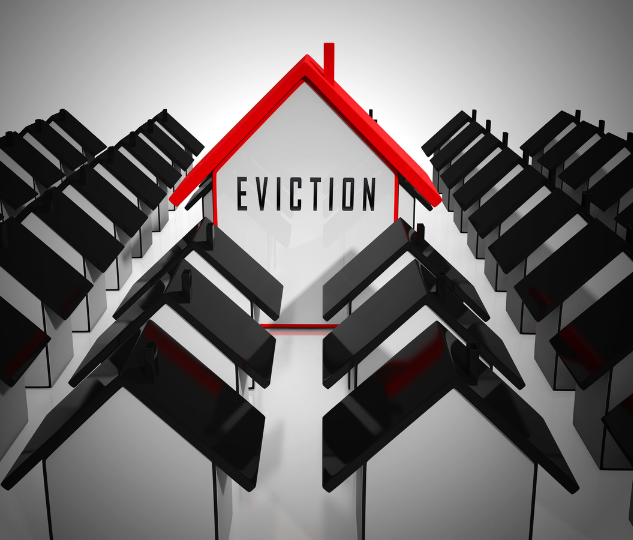Looking back at an eviction on your record feels a lot like spotting a missed dot in a connect-the-dots puzzle. It stands out. It’s there, haunting you in the middle of your rental history, making it harder to move forward. But how long does an eviction actually stay on your record? Seven years. That’s the standard answer, but the truth is, how you deal with it in the meantime can drastically change your rental prospects.
Let’s dive deep into what this means for you, how you can work around it, and yes, how you can make your way back into the rental market with confidence, whether you’re eyeing apartments in Houston or perhaps considering rental homes in Austin, Texas.
The Credit Report Confusion
You might be wondering if an eviction automatically shows up on your credit report. The answer? Not exactly. It’s a bit of a trick question. Evictions themselves don’t usually make a direct appearance on your credit report. What does show up, however, is any unpaid debt from your eviction.
Here’s how: If your landlord turns your unpaid rent over to a collection agency, that debt will appear on your credit report. Collection agencies report to the big three credit bureaus (Experian, Equifax, and TransUnion). Unpaid rent listed in collections can ding your credit score significantly. It’s a harsh reminder every time you glance at your credit score.
What’s worse? If your debt is sold to a collection agency, you’ll also have to deal with relentless phone calls. If you’ve been in that boat, you know how exhausting it can get.
Renting With an Eviction on Your Record – Is It Possible?

So, you’ve got an eviction on your record. Maybe you’ve turned your financial situation around, but that scar from the past is still there. Does that mean you’ll never rent again? Not necessarily.
While it’s no secret that having an eviction makes renting tougher, it’s not impossible. The key? Proving to landlords that you’ve moved beyond that rough patch.
Here’s how you can improve your chances of getting approved for an apartment:
- Be Upfront: This one is huge. Hiding an eviction will almost always backfire. Landlords will find out during the screening process, so it’s better to own up to it. If you’ve made amends with your previous landlord or paid off your debt, make that clear. Share the whole story.
- Get a Cosigner: Having a cosigner can help soften the blow of an eviction. A cosigner, often someone with good credit, takes on the financial responsibility if you fail to pay rent. This makes landlords feel more secure.
- Pay More Upfront: If you have the means, offer to pay a few months’ rent in advance. Landlords often feel more comfortable if they see that you’re willing to put your money where your mouth is.
- Rebuild Your Credit: This takes time, but it’s worth the effort. Pay your bills on time, reduce your debt, and slowly but surely, your credit score will bounce back.
These small steps can go a long way in improving your odds of securing a lease in places like Houston apartments luxury or even upscale rental homes in Austin, Texas.
Removing an Eviction From Your Record
You’ve probably heard that evictions hang around for seven years. This is true, but there’s some good news: you can take steps to have it removed earlier. While it’s not easy, it’s certainly doable.

First things first: settle the debt. If your eviction stemmed from unpaid rent or damages, pay what you owe. If your landlord hasn’t yet sold the debt to collections, this could prevent it from happening. It also shows landlords that you’ve taken responsibility for your past mistakes.
But don’t stop there.
Once you’ve settled the debt, ask your landlord to remove the eviction from your record. Get the agreement in writing. Some landlords are willing to help, especially if they believe you’ve learned from the experience and won’t repeat the same mistakes. After all, they have nothing to gain by keeping an old eviction on your record.
Can You Dispute an Eviction?
If the debt has already been sold to a collection agency, you might wonder if you can dispute the eviction. Unfortunately, evictions themselves aren’t reported by the credit bureaus, so you can’t dispute the eviction directly. However, you can dispute any collections related to the eviction. This can be tricky, but it’s worth trying if there are errors or inaccuracies in the reporting.
Keep in mind, though, that even if you pay off your debt, the collection will remain on your credit report. It’ll simply be marked as “paid,” but the damage to your credit score will stick around for up to seven years.
Avoiding Eviction in the First Place
We know that hindsight is 20/20, but if you’re still teetering on the edge of eviction, there are a few ways to avoid it altogether. Most landlords would rather work with you than go through the hassle and expense of eviction proceedings. Here’s what you can do:
Fight it in Court

If you believe your landlord hasn’t followed proper procedures, you can dispute the eviction in court. For example, in some states like Texas, a landlord must give tenants written notice before filing an eviction lawsuit. If they didn’t, you might have grounds to fight it.
Set Up a Payment Plan
Be honest about your financial situation and try to negotiate a payment plan. It’s in the landlord’s interest to avoid eviction, too – it costs them time and money. A payment plan may allow you to catch up on rent and stay in your home.
Bankruptcy
Filing for bankruptcy can stop eviction proceedings in their tracks. While this isn’t an easy decision, it might be worth considering if you’re truly struggling. Bankruptcy will freeze all wage garnishments and legal actions, giving you time to reorganize your debts and potentially discharge late rent payments.
Moving Forward
An eviction on your record doesn’t have to be the end of the road. Yes, it’s a black mark that can linger for up to seven years. But with persistence, honesty, and a little bit of financial savvy, you can recover from it and start fresh. Whether you’re dreaming of apartments in the Heights in Houston or a more luxurious space in Houston apartments luxury, keep moving forward. Start by settling your debt, rebuilding your credit, and being upfront with landlords. You’d be surprised how far that can take you.
In the meantime, it’s all about staying resilient. Connect those dots in reverse and figure out what changes you can make to ensure that you don’t find yourself in the same situation again. Evictions don’t define you; how you respond to them does.







